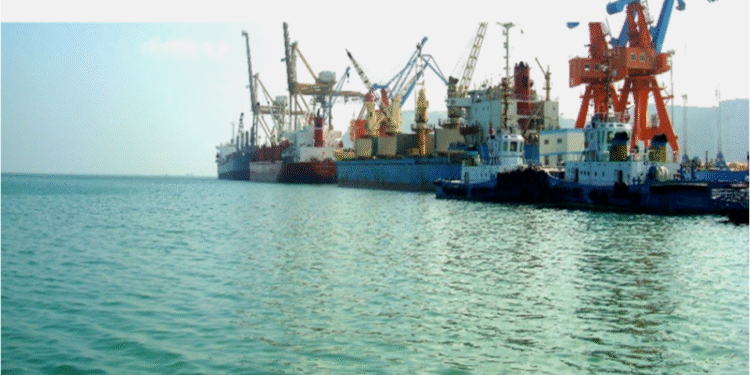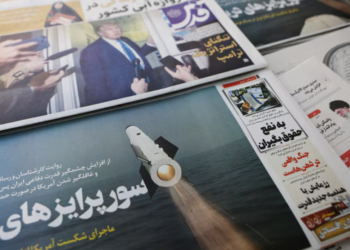By Malik Muhammad Ashraf
Notwithstanding the fact that the China Pakistan Economic Corridor is a nationally owned mega-development initiative regarded as a game changer for Pakistan and the region and an epitome of an eternal friendship and strategic partnership between the two countries, some political elements are trying to make it controversial. First the ANP started a route change controversy in complete disregard to the agreements and the modalities agreed between the two countries in regards to the implementation of CPEC and the decision making process in respect of determining the alignment and the areas through which the network of roads under the CPEC had to pass. The controversy also had parochial overtones.
Now the PTI is attempting to generate a new controversy over the prioritization of the construction of the eastern route of the corridor which traverses through Punjab and Sind. A well orchestrated campaign is underway to create misgivings about the mega-initiative and promoting the notion that going for the eastern route first would deprive Balochistan and KPK of the benefits of CPEC. The KPK Chief Minister Pervez Khatak has threatened to launch an agitation against the federal government. An attempt is underway to enlist the support of other political parties represented in the KPK parliament, particularly JUI (F) in fostering a joint stand on the issue. Reportedly JUI (F) Chief Maulan Fazlur Rahman addressing a prèss conference in Peshawar on 3rd January, 2016, more or less endorsed the views of the KPK Chief Minister saying “ it seems the Prime Minister has reneged on his promise that he had made to the entire political leadership on May 28, 2015 during All Parties Conference that no change would be made in the route of the CPEC” JUI (F) has also convened an APC on CPEC from its own platform. It would perhaps be pertinent to point out that Maulana Fazlaur Rehman who attended the foundation laying ceremony of a section of the western route at Zhob by the Prime Minister on 30th December 2015, addressing the gathering said “CPEC project is a testimony to China’s friendship with Pakistan and is a matter of immense pleasure as it will address basic issues in Balochistan and will help in paving the way for durable peace in the region”. This vacillating stance by Maulana is also untenable.
The government has repeatedly clarified that no change has been made in the routes of the Corridor since their finalization. The Western route originating from Gawadar would pass through Turbat, Panjgur, Nag, Basima, Sorab, Qalat Quetta, Qilla Saifullah, Zhob, D I Khan before leading towards Islamabad. The central route beginning from Gawadar would lead to D I Khan through Basima, Khuzdar, Sukkur, Rajanpur, Layyah, Muzaffargarh and Bakkar. The eastern route starting from Gawadar would traverse through Basima, Khuzdar, Sukkur, Rahimyar Khan, Bahawalpur, Multan, Lahore and Faisalabad and Islamabad. An incisive look at these proposed routes reveals that no province of the country has been neglected and it is not exclusively beneficial to a particular province as being perceived and alleged. The three routes pass through all the four provinces who would ultimately share the benefits of this venture which has a time-line of 2030 for its completion.
Contrary to the claims of PTI, Balochistan and KPK would be the biggest beneficiaries of this collaborative effort between China and Pakistan. Perhaps it would be appropriate to mention some of the facts regarding the implementation of the CPEC to unravel the truth. Gawadar port in Balochistan has been completed and work on the construction of an international Airport is already in progress. The management of Gawadar port has been handed over to the Chinese. Work on western route which starting from Gawadar would wind its way through Balochistan, KPK and Gilgit-Baltistan to Kashghar is well underway. The Frontier Works Organization has already constructed 870 Km segment of the western route in Balochistan linking Tallar, Turbat and Hushab. The members of the parliamentary committee of the parliament on CPEC visited this segment of the western route on 29th November, 2015. Chairman of the committee Mushahid Hussain Syed talking to the media said that the CPEC had become vital factor in uniting the federation of Pakistan with a focus on progress and prosperity of the smaller provinces, particularly Balochistan and KPK. He said CPEC was a national project which and not belonging to any political party, individual and one particular province that would change the fate of the entire country.The elements who have been trying to orchestrate route change controversy have never come up with a credible evidence to prove their allegations.
The contention that the federal government was giving top priority to the eastern route is quite absurd in view of the fact that the work on western route in Balochistan started much before commencement of work on the eastern route. The government in fact is working on both these routes simultaneously. The progress on the eastern route however is faster than the western route because of the fact that Punjab and Sindh have an extensive network of roads and railways and other infrastructure that can act as a catalyst in the early completion of the route and making it productive in the shortest span of time. The decision to go ahead with this route has been made on the desire of our Chinese partners and the recommendations of the working groups formed by the two countries keeping in view the technical aspects in conformity with the agreed mechanism of giving priority to the early harvest projects.
The foregoing facts and observations of Mushaid Hussain are good enough to prove that the PTI and other parties were trying to mislead the public about the ground realities pertaining to the implementation of CPEC and its overall likely impact on the economic profile of Pakistan and its federating units. Trying to politicise the issue is actually tantamount to sabotaging national interests and jeopardizing the exponential leap in the economic ties between China and Pakistan. Intellectual circles and political analyst are of the considered view that after having failed to dislodge the federal government through its unconstitutional antics, having faced reverses on its rigging mantra at different forums and failing to improve governance in KPK, the PTI was now trying to divert the attention of the public by fomenting a controversy on CPEC.
Politicking on CPEC is the most senseless ploy by PTI, the KPK government and other political elements. They must understand that basically the CPEC is Chinese conceived initiative and Pakistan has opted to become a partner in its implementation that will bring immense economic benefits to Pakistan and the entire region. The entire investment is being made by China and all decisions regarding the routes and implementation of all the projects are being made by the joint working groups set up by the two governments keeping in view the technical feasibilities. Rationality demands that all such decisions should be made keeping in view the economic viability and technical feasibility of each project to ensure productive outcomes. The CPEC has nothing to do with internal politics of Pakistan.
The writer is a freelance columnist.


















